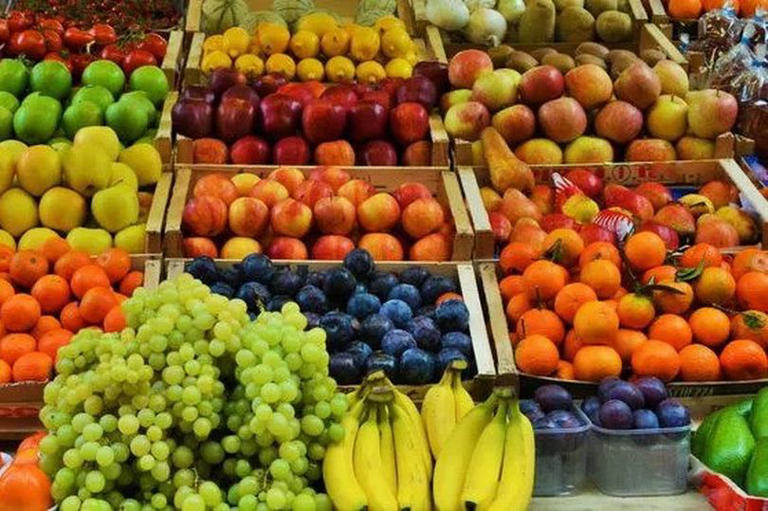











Seven fruits for diabetics to avoid that can increase blood sugar spike risk
As with many other parts of a balanced diet, fruit is an important component in keeping a healthy body and mind.
Fruit is full of vitamins and minerals that can be beneficial to your health, plus they are low in calories, making them the perfect quick snack.
However, there are certain fruits that can be considered a "danger" to diabetic people due to their high glycaemic index, reports the Mirror. Diabetes causes a person's blood sugar to rise too quickly, so their body can't break down glucose effectively.
According to the NHS, there are more than 4.9 million people with diabetes across the UK. Being diabetic is a lifelong condition, and can usually be monitored by the patient themselves.
Diabetes is classified into two types - one and two. Type one happens when the cells that produce insulin, which regulates blood sugar levels, are broken down by the body instead.
Type two diabetes is much more common, and is typically caused by being overweight and not exercising enough. In the UK, 90 per cent of adults with diabetes will have been diagnosed with type two.
Doctors recommend a range of fruit to be included in a diabetic person's diet, but other experts have told people to be wary of fruits with a high glycaemic index (GI).
The GI is a rating system that shows how quickly foods that contain carbohydrates will affect a person's blood sugar level if eaten on their own.
Diabetes.co.uk explains: "High GI foods break down very quickly causing blood glucose levels to rise sharply. People with diabetes refer to sharp rises in blood sugar levels as ‘spikes’ in blood sugar.
"Furthermore, for those who produce their own insulin, high GI foods can force the body to try to produce a surge of insulin to counteract the fast-acting carbohydrates and a common consequence of this is a feeling of hunger within two to three hours, which can leave the dieter craving more food."
They also warned: "For people with diabetes, this can be particularly dangerous as the ability of the body to control blood glucose levels is reduced or non-existent."
Fruits with a high GI that people should avoid
According to Diabetes.co.uk, high GI fruits include:
-
Bananas - Oranges - Mango - Grapes - Raisins - Dates - Pears
Fruits with a lower GI include the likes of:
- Berries - Plums - Kiwi fruit - Grapefruit
According to the NHS, lower GI foods are recommended for those with diabetes - but it is also extremely important to eat a balanced diet.
The NHS said: "Some low GI foods, such as wholegrain foods, fruit, vegetables, beans and lentils, are foods we should eat as part of a healthy, balanced diet.
"However, using the glycaemic index to decide whether foods or combinations of foods are healthy can be misleading.
"Foods with a high GI are not necessarily unhealthy and not all foods with a low GI are healthy. For example, watermelon and sometimes parsnips are high GI foods, while chocolate cake has a lower GI value."
Diabetes.co.uk added: "As low GI foods tend to break down more slowly, they are less likely to cause a rapid increase in blood sugar levels compared to high GI foods and therefore they are a better option for keeping stable blood glucose levels.
"Favouring low GI foods over high GI foods leaves you feeling more satisfied over a longer period of time, and less likely to feel hungry before the next meal."
High GI foods also include sugary foods, white bread, white rice, potatoes and sugary drinks.
Story by Freya Hodgson & Abbie Meehan & Lucy Farrell:: Daily Record
No thoughts on “Seven fruits for diabetics to avoid that can increase blood sugar spike risk”
Articles - Most Read
- Home
- LIVER DIS-EASE AND GALL BLADDER DIS-EASE
- Contacts
- African Wholistics - Medicines, Machines and Ignorance
- African Holistics - Seduced by Ignorance and Research
- African Wholistics -The Overlooked Revolution
- The Children of the Sun-3
- Kidney Stones-African Holistic Health
- PART ONE: DIS-EASE TREATMENT AND HEALTH-3
- 'Tortured' and shackled pupils freed from Nigerian Islamic school
- The Serpent and the RainBow-The Jaguar - 2
- PART ONE: DIS-EASE TREATMENT AND HEALTH-4
- PART ONE: DIS-EASE TREATMENT AND HEALTH-2
- King Leopold's Ghost - Introduction
- PART ONE: DIS-EASE TREATMENT AND HEALTH-5
- African Wholistics - Medicine
- Menopause
- The Mystery System
- PART ONE: DIS-EASE TREATMENT AND HEALTH-6
- The Black Pharaohs Nubian Pharaohs of Ancient Egypt
Who's On Line?
We have 105 guests and no members online
Ad Agency Remote
Articles - Latest
- New genetically-modified purple tomato made with DNA created by scientists
- Pili Nuts Nutrition Facts and Health Benefits
- Why you’re hungry all the time – and what you can do about it
- The hidden health hazards of vegan sausages
- The living hell of insomnia – and the solutions that don’t work
- What Is Mizuna? Top 6 Benefits of This Supergreen
- 11 Proven Health Benefits of Ginger
- A daytime nap is good for the brain
- Ancient Roman Medicinal Plant Was Feared Due to 'Insanity, Giddiness' Effects: Study
- Shock of the old: 10 scandalous vintage medicines – from asthma cigarettes to cocaine wine
- What Happens to Your Body When You Eat Blueberries Every Day
- Magnesium is brilliant for sleep and cramps - here's how to get enough of it
- How psychosomatics works and what our body tells us
- Atrial fibrillation linked to high mortality and hospitalization rates, UQ study shows
- Ask A Nutrition Professional: What Are The Health Benefits Of Herbal Tea?
- Study reveals human gut plasmid with biomarker potential
- What Makes Spinach So Healthy?
- 'Why don't we recognise the importance of men in care professions?'
- Burdock – 7 Amazing Benefits & Nutrition Facts

